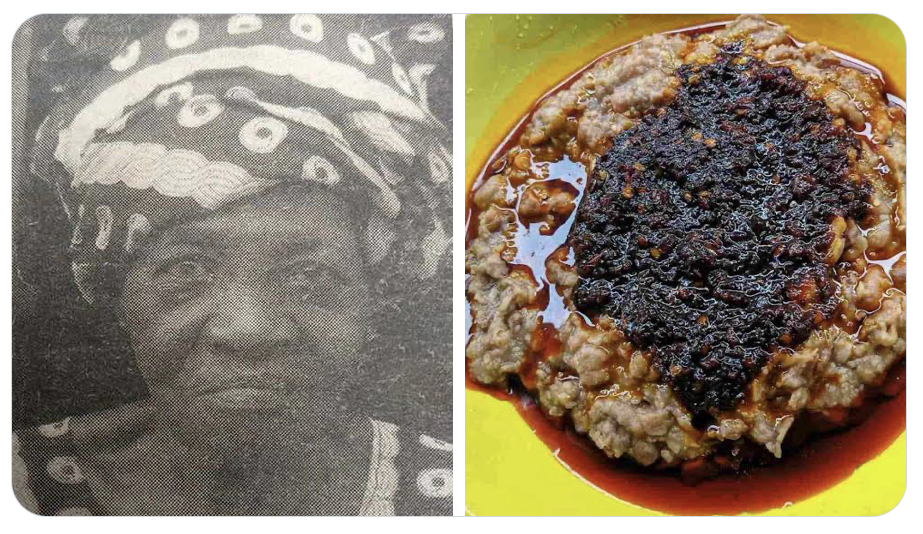
Sapon was extracted and coined from the word “Saponloore ; Se Apon loore” meaning; help the bachelors.
Sapon was the meeting place where people, especially men who were bachelors used to go and eat delicious foods and drink in times past in Abeokuta. Sapon connects Ijaiye, Ago-Oba, Itoku, Lafenwa, Isale Igbein and Ake roads.
There was actually a woman called Madam Janet Ewusi Odesola who was selling beans at Sapon. Important personalities, kings, government officials, men, women and children loved her sumptuous cooked beans with stew (Ewa Pekule).
Her beans was selling very fast despite cooking a big pot of beans daily. People bought with cash and when they were out of cash, they bought on credit. It got to a point that she could not handle the credits anymore.
That was when she devised a means of preventing people from buying on credit.
Whenever they came to her, she asked for money. If it was 10 kobo they had, she would give them as large portion of beans. And if they begged for more beans on credit, she would say, “sebiotimo” that is, “cut your cloth…..”
With time, people got used to her new style. Before they asked for more, they already knew the response she would give. As a result, they gave her the name “Sebiotimo, elewa sapon”.
Then, she sold one big pot of beans per day and when people asked her why she didn’t cook more, she would reply; “Mo se bi motimo ni”,meaning “I cut my cloth according to my size”.
“Sebiotimo, elewa sapon”, simply means “Cut your coat according to your size”.
Madam Janet was born in 1925 and went to Methodist primary school, Ijoko, Abeokuta. She was initially hawking dry fish before she forayed into cooked beans in 1951.





